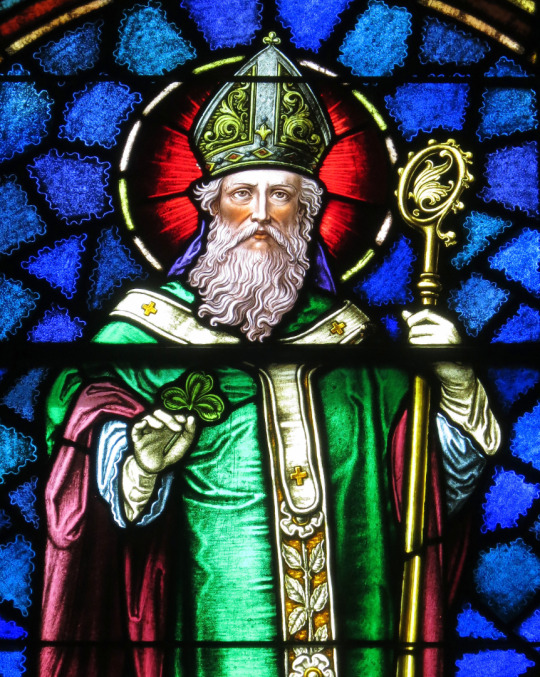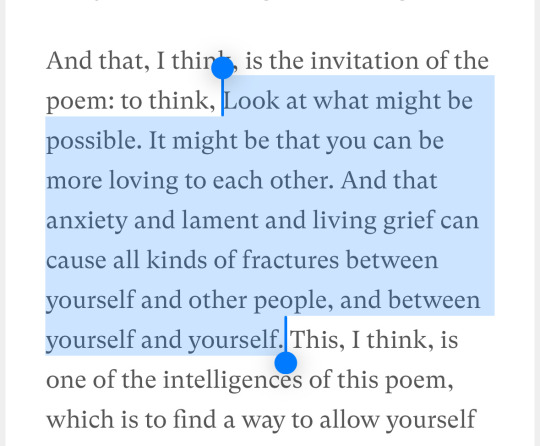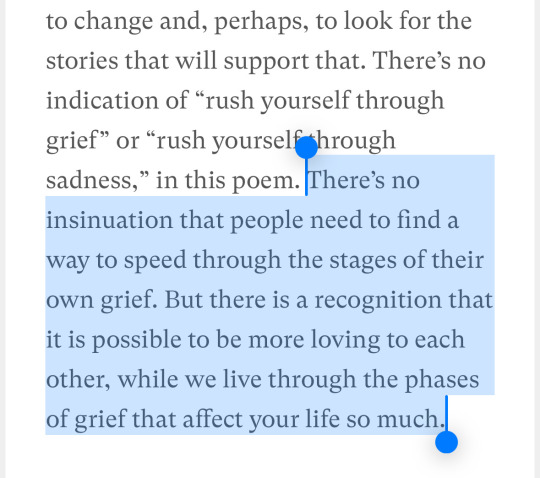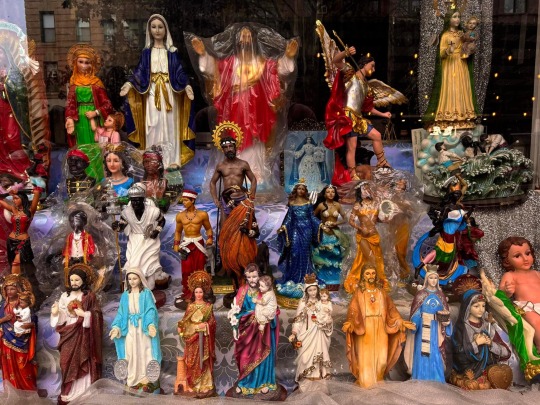#pádraig
Text
Several people have told me that the spelling Páraic is an odd spelling for Pádraig and yet I have purchased two books by different Páraics - Páraic Kerrigan and Paraic O’Donnell - and only one Pádraig. The Paraic I know best spells it like that too. So now I’m curious how many other people find it a normal spelling also.
(By ‘normal’ I don’t mean ‘the most common spelling’. Answer yes if you wouldn’t be surprised someone spelling it like that.)
23 notes
·
View notes
Text

Pádraig "Let My People"
78 notes
·
View notes
Text
Brother Pádraig is literally my pookie wookie babygirl he has done no wrong
#a thing of vikings#Pádraig#Brother Pádraig#yes he's insufferable#but aren't we all at the end of the day?#athingofvikings#ATOV
0 notes
Text

THE DESCRIPTION OF SAINT PATRICK
The Apostle of All Ireland
Feast Day: March 17
"Hear me, people of Ireland. For God has sent me back to you to show you His way. He is not a God who asks for these sacrifices. For He took our sins and sacrificed Himself for our salvation. He does not ask for your body to be burned, but for your heart, that He might fill it with His love, His abundance, and His light!"
Patrick was born in 385 in Roman Britain (now modern-day United Kingdom of Great Britain and Northern Ireland).
At the age of 16, he was sold as a slave in Ireland, where he tended sheep in Dalriada. He lived for six years among mountains and forests, growing in faith and holiness, and during his time in captivity Patrick became fluent in the Irish language and culture.
After a miraculous escape, Patrick, after hearing a voice urging him, to travel to a distant port where a ship would be waiting to take him back to Britain. On his way back to Britain, Patrick was captured again and spent 60 days in captivity in Tours, France. During his short captivity within France, Patrick learned about French monasticism.
Shortly afterward, he was told in a dream by some Irish people (notably Victoricus) to go back and evangelize them.
In 431, having completed his theological studies in Lerins Abbey, he was sent as a missionary to Ireland. The following year, Pope Celestine I had him consecrated as bishop. His first mission was in the north of the island, where he had formerly pastured cattle as a slave. Then, he traveled the whole country, converting many pagans by the force of his faith and the many miracles granted by God.
Patrick's success aroused the envy of the pagan priests and the druids, who plotted to kill him. One day, he exchanged his seat with the one of the charioteer, who was killed in the journey by a spear intended for himself. After three decades (30 years) of labor and prayer, the Catholic church was successfully established through Ireland.
Patrick gave his last blessing from the summit of Cruachan Aigli (now Croagh Patrick), the 2,510-foot 'mount of the eagle' in County Mayo on Ireland's west coast.
There, after a fast of 40 days, he had a vision of thousands of future Irish saints, who were singing out: 'You are the father of us all!'
He died soon afterwards in 461 in Saul, Dal Fiatach, Ulaid, Gaelic Ireland (present-day Northern Ireland) and was buried at Saul, where he had built his first church (St Patrick's Cathedral, Armagh).
#random stuff#catholic#catholic saints#saint patrick#patrick of ireland#san patricio#pádraig#padrig#ireland#archdiocese of new york#archdiocese of newark#roman catholic archdiocese of los angeles#st. patricks day
1 note
·
View note
Text


Pádraig Ó Tuama, on Rita Dove's poem "Eurydice, Turning" as featured in On Being: Poetry Unbound
#pádraig ó tuama#poetry unbound#rita dove#eurydice turning#words#interviews#typography#grief is a circular staircase#to be human#the great wound#id in alt text
2K notes
·
View notes
Text
“In Irish when you talk about emotion, you don’t say, ‘I am sad’. You’d say, ‘sadness is on me’ ‘tá bron orm’.
And I love that because there’s an implication of not identifying yourself with the emotion fully. I am not sad, it’s just that sadness is on me for a while.
Something else will be on me another time, and that’s a good thing to recognise.”
—Pádraig Ó Tuama
3K notes
·
View notes
Text

how does that saying go again? kiss me, I’m Irish?
Happy Paddy’s day from mine to yours ☘️
#green geansaí for the day that’s in it#Lá Fhéile Pádraig sona daoibh#butch4femme#butch lesbian#lesbian#my pics
171 notes
·
View notes
Quote
[Paul] Celan, whose parents were murdered at a camp in the Transnistria Governorate, translated Shakespeare while interned in a ghetto. For him, language was a project to be wrestled with. He believed it was possible for language to make something happen; and even if it didn’t make something happen, then at least it was worthwhile trying. He held people to account for loose language (his short correspondence with Heidegger, that phenomenologist, are extraordinary in their critique), and demanded that attention be paid to the impact that words can have in public.
Pádraig Ó Tuama, from his essay “The possibilities of language”, published at the Poetry Unbound substack, March 26, 2023
231 notes
·
View notes
Text

Pádraig Timoney (Northern Irish, 1968), Untitled (Popupmobydick), 2015. Oil on canvas, 45 x 64 in.
108 notes
·
View notes
Text
Éirinn go Brách.
Saoirse don Phalaistín.
Cosaint do dhídeanaithe.
Bia don ocrach.
Ceartas do gach duine.
Inis an frírinne don chumhachtach, as Gaeilge, as Béarla, i ngach teanga.
Ireland Forever.
Freedom for Palestine.
Protection for refugees.
Food for the hungry.
Justice for all people.
Speak truth to power, in Irish, in English, in every language.
88 notes
·
View notes
Text
So much lurking in the silence of a poem and so much present in the text of it.
Desire, I think, is a portal where we look at the thing we want, but we also look at the other things that are gathered around that. And I don’t think I know of any better vehicle for holding all that together than poetry. In the lines of poetry, there’s so much said and so much implied, so much lurking in the silence of a poem and so much present in the text of it.
— Pádraig Ó Tuama, from the Poetry Unbound Podcast, “Yu Xiuhua | Crossing Half of China to Sleep with You” (via Poetry of Witness and Provocation)
175 notes
·
View notes
Text
THE LIFELINE
Here is what I know: when
that bell tolls again, I
need to go and make something,
anything: a poem, a pie, a terrible
scarf with my terrible knitting, I
need to write a letter, remind myself
of any little lifeline around me.
When death sounds, I forget most
of what I learnt before. I go below.
I compare my echoes with other people’s
happiness. I carve that hole in my own
chest again, pull out all my organs once
again, wonder if they’ll ever work again
stuff them back again. Begin. Again.
PÁDRAIG Ó TUAMA
58 notes
·
View notes
Text
This St Patrick’s Day why not take a look at my lists of Irish creators and media and find something you enjoy?
If there’s someone or something you think I’m missing or want to highlight, especially if they create art as Gaeilge or about marginalised Irish experiences, feel free to share!
#my lists are collaboratively made with all of ye and your suggestions!#help me highlight some more people or films or books or plays or music that deserve more love!#st patrick’s day#lá fhéile pádraig#Irish#Ireland#my own post
311 notes
·
View notes
Photo

Pádraig Timoney (Northern Irish, 1968), Not To Put Too Fine A Point On It... 1, 2019. Oil, acrylic, and photographic developer on canvas, 182.9 x 218.4 cm
133 notes
·
View notes
Text

Someone for everyone in Brooklyn’s holy shop.
[Pádraig Ó Tuama]
* * * *
“Because here's something else that's weird but true: in the day-to day trenches of adult life, there is actually no such thing as atheism. There is no such thing as not worshipping. Everybody worships. The only choice we get is what to worship. And the compelling reason for maybe choosing some sort of god or spiritual-type thing to worship—be it JC or Allah, be it YHWH or the Wiccan Mother Goddess, or the Four Noble Truths, or some inviolable set of ethical principles—is that pretty much anything else you worship will eat you alive. If you worship money and things, if they are where you tap real meaning in life, then you will never have enough, never feel you have enough. It's the truth. Worship your body and beauty and sexual allure and you will always feel ugly. And when time and age start showing, you will die a million deaths before they finally grieve you. On one level, we all know this stuff already. It's been codified as myths, proverbs, clichés, epigrams, parables; the skeleton of every great story. The whole trick is keeping the truth up front in daily consciousness.”
― David Foster Wallace , This Is Water: Some Thoughts, Delivered on a Significant Occasion, about Living a Compassionate Life
+
“Never touch your idols: the gilding will stick to your fingers."
(Il ne faut pas toucher aux idoles: la dorure en reste aux mains.)”
― Gustave Flaubert, Madame Bovary
30 notes
·
View notes
Text
“If you strike us down now we shall rise again and renew the fight. You cannot conquer Ireland; you cannot extinguish the Irish passion for freedom. If our deed has not been sufficient to win freedom then our children will win it by a better deed.” ~ Pádraig Pearse
15 notes
·
View notes